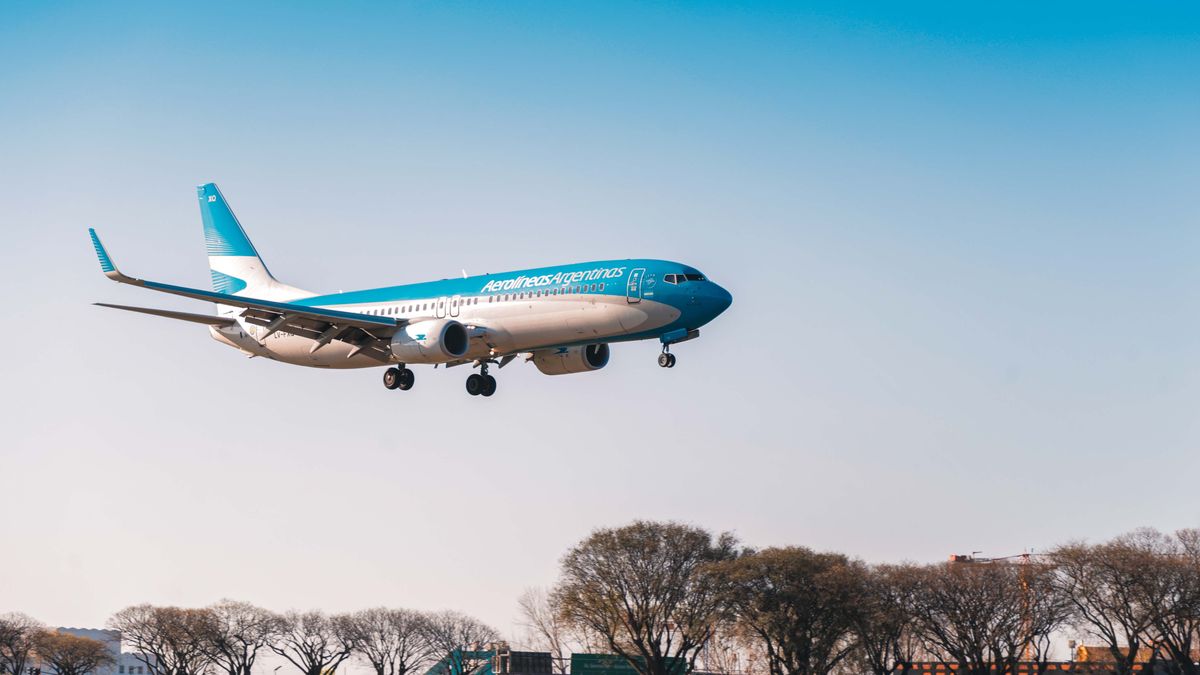The National Government began with the deregulation of the commercial aviation sector. Through the Decree 599/2024published in the Official bulletinthe Executive Branch approved the regulations that establish access to the commercial aviation markets, repeals regulations and modifies the Aeronautical Code.
The measure impacts the commercial aviation authorizations to operate in Argentine territory. These licenses will be granted to carry out internal and international air transport activities for passengers and/or cargo, for regular or non-regular services, performed with aircraft; for aerial work and for operational airport and ramp services in general.
decree 599/2024 commercial aviation deregulation
It is a initiative that allows for more ramp operators and that each airline can choose the company that provides the service. Currently, Intercargo It has exclusivity and some airlines, such as Flybondi and American Airlines, provide themselves.
It will be allowed that the Airlines can make whatever contracts they wantwhich was previously limited. Now they will only need the approval of the National Civil Aviation Administration (ANAC).
Deregulation of commercial aviation: what are the changes that are established?
“The activity regulated by this regulation shall be governed by the following principles: a) Free market access for new operators through short administrative procedures and agile. b) Stimulation of fair competition between different operators. c) Tariff deregulation. d) Safeguarding operational safety. e) Continuous operational surveillance of authorized services. f) Freedom in setting frequencies, where appropriate, initially declaring them in their business plan, for analysis subject to strict operational criteria and the need for air traffic to develop in a safe and orderly manner. g) Limited and efficient interventions by the National Public Administration, of a digital/electronic nature, aimed exclusively at preserving the principles stated above. h) Transparency in the measurement, assignment and use of airport capacity,” the Government indicated.
airport ezeiza aeroparque rain storm weather.jpg
Jorge Newbery Airport.
In turn, they include “Incentives for the creation of new commercial air routes and/or for the operation of new carriers”, “fair access and allocation, with international standards, of common airport services and spaces, which allow free competition”; and the establishment of monitoring indicators and indices based on operational efficiency, regularity, punctuality and planning.
The decree, which bears the signatures of the president, Javier Mileiof the Chief of Staff, Guillermo Francos and the Minister of Economy, Luis Caputoinstructs the competent authorities to “guarantee the principles of free market and free competitionsubject to the rules of fair trade, generating the necessary instances to avoid any monopolistic conduct by a carrier, an airport or ramp service operator in general and/or any other provider of the air transport system.”
The Government stated that the reform of the Aeronautical Code will be applied taking into account the international standards on trade in goods and services, “seeking to harmonize the internal regime, as far as possible, with those of other MERCOSUR countries or other international organizations.”
The modifications also include the reduction of the time limits of the procedures in order to avoid “unnecessary delays and the indefinite duration of the processes, “thus optimizing the resources available to the administration.” “The procedures aimed at regulating the access of air operators to the Argentine market must be subject to the specific and exclusive requirements of the subject matter,” the Executive Branch stated.
In this way, the idea of “optimize the available infrastructure” and “an efficient allocation of resources in an impartial, non-discriminatory and transparent manner.”
Air transport deregulation: what is the objective of the measures?
According to the official statement from the Ministry of Transportation, the ultimate goal of the reform package is for the country have greater connectivity, more frequencies and new airlines. “This will generate a greater flow of tourism in the Argentine provinces, with more competitive rates so that more people can fly,” they explained.
The necessary investments for the sector and to strengthen operational safety are also promoted. Work was carried out jointly with companies in the sector, universities, public and private technical teams, including more than 80 industry players.
At the same time, the Transport Ministry revealed that “the National Government has been developing a policy of liberalizing flights through bilateral agreements that promote the opening of skies with Ecuador, Brazil, Peru, Chile and Uruguay; also with Panama and Canada” and anticipated that more countries will join in the coming months.
Finally, it is important to highlight that although the decree bears the signature of Luis Caputothe initiatives were worked on jointly by the Ministry of Transportation and Federico Sturzenegger, who took office as minister on Friday of Deregulation and Transformation of the State.
Source: Ambito




